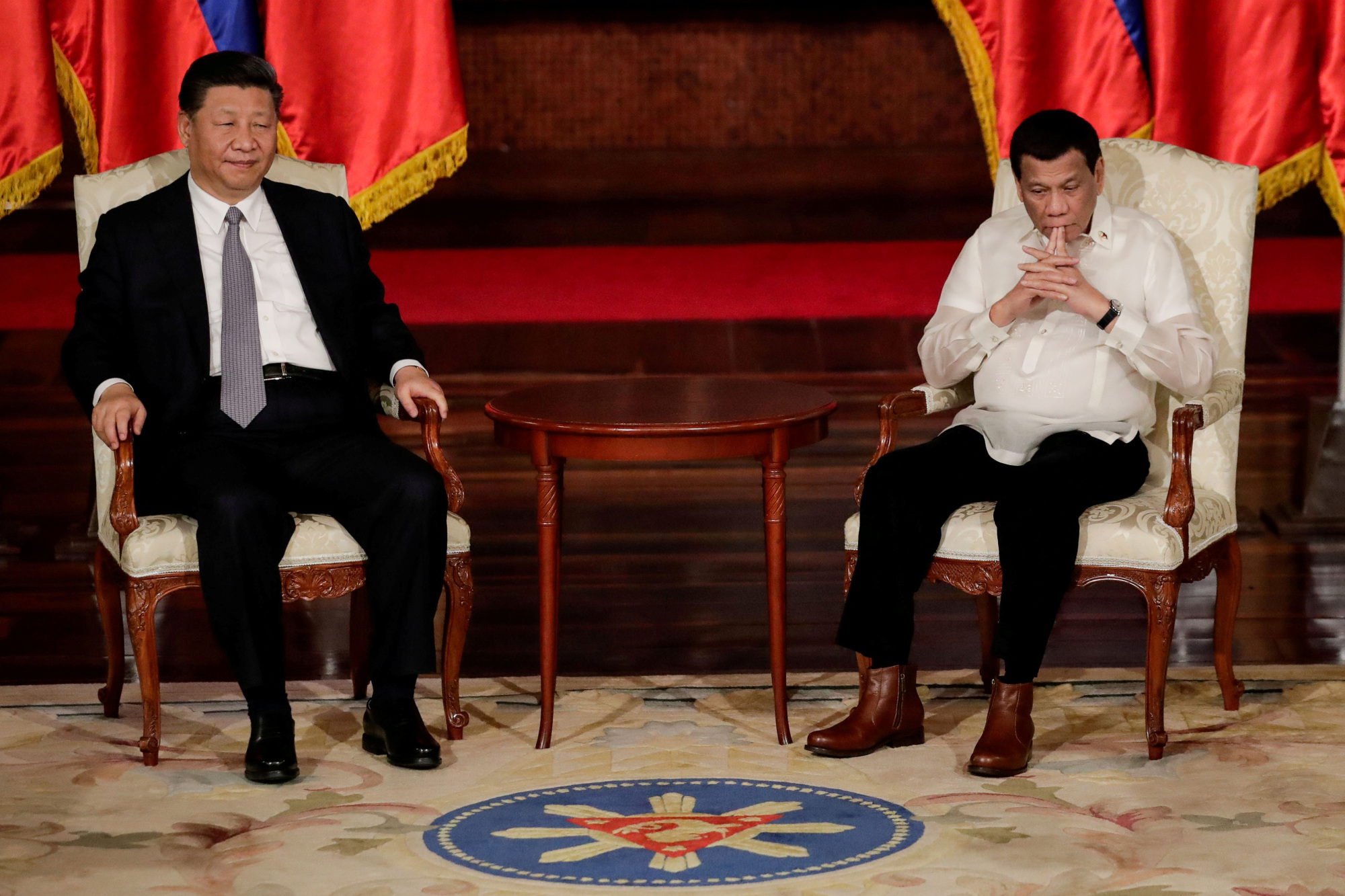What happens to small states on the front lines of a decaying international order? We can get a good sense by looking at the Philippines.
The last three years have seen a depressing erosion of Manila's relationship with the United States and a weakening of its resistance to Chinese expansionism in the South China Sea. It is tempting to blame this on the eccentricities and excesses of President Rodrigo Duterte, who has ostentatiously snubbed Washington while courting Beijing. But this realignment really reflects a deeper belief that U.S. influence is declining as China's ascendancy unfolds — and it could be a preview of a grim future in the Asia-Pacific region.
The U.S. and the Philippines have had a mutual defense pact since 1951, and the relationship has experienced ups and downs before. After the Cold War, the alliance fell into disrepair, with strong nationalist sentiment in the Philippines leading to the withdrawal of U.S. forces. Over nearly 20 years, however, American and Filipino officials worked to make the partnership real again.



